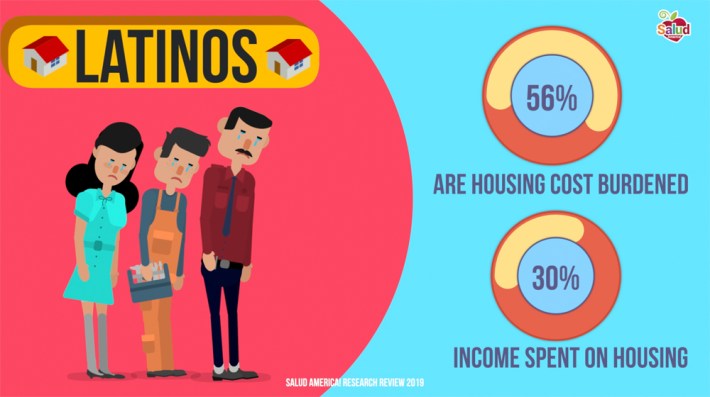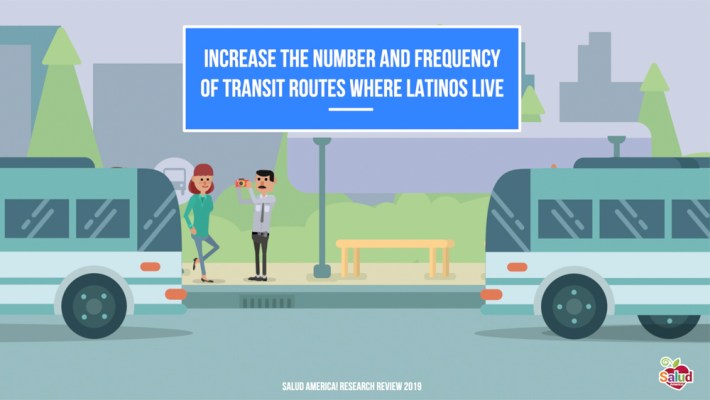Latino-Americans are stuck living in places that are either far from employers or don't have enough transit to serve the frequently car-less population, a new study finds, pointing to the need for major transportation changes to improve immigrants' quality of life.
Salud America!, a UT Health San Antonio research group, found that Latinos, often priced out of city centers and chasing jobs that predominantly exist in suburban and rural areas, face longer commutes than non-Latino Americans, said the group's 39-page report, which was released this month.
Yet the solution is clear: when Latinos live in walkable neighborhoods that are bike accessible and have reliable public transit options — known as transit-oriented development — they have lower poverty rates, experience less pollution, and get more exercise, the report showed.
“U.S. Latinos report specific transportation challenges that arise due to the discrepancy between where Latinos live versus where they work,” according to the report, “The State of Latino Housing, Transportation, and Green Space.” “These challenges include transit fare affordability, reliability, and coverage."

Two dynamics are at work for Latinos — and both have negative effects.
As the cost of housing in urban areas across the country is rising due to gentrification, Latinos are moving further away from job centers in search of affordable places to live. But costs remain high — in 2015, 57 percent of Latinos spent more than 30 percent of their income on housing — and transit in city outskirts can be unreliable and infrequent.

There’s also a “spatial mismatch” between where jobs exist and where Latinos live. The suburbanization of the construction, agricultural, and manufacturing industries, and the prevalence of low-skilled jobs in landscaping and other service professions far from cities have Latinos scrambling to get steady work far from home. The suburbs and exurbs often lack expansive bus and rail networks, forcing Latino workers to rely on friends and neighbors to get to work or brave long commutes with multiple transfers.
"A pattern of Latino migration to small town and rural areas in the Southeast and Midwest instead of to traditional urban centers has led to the formation of isolated, segregated rural Latino communities with unique housing and transportation needs," the study said.
It's no wonder then that Latinos spend an average of 26.9 minutes on their commute to work, almost two minutes longer than Caucasians, according to National Equity Atlas data analyzed in the Salud America! report.
The study also found that America's car culture negatively affects Latinos in several ways:
- Latino households are also twice as likely not to have access to a car as opposed to non-Latino households (12 percent versus 6.5 percent).
- In San Francisco, only 15 percent of Latinos drive a vehicle every day of the week while 16 percent had access to one for part of the week, and seven out of 10 Latinos never have access to a car.
- About one in four Latinos, or 27 percent, use public transit daily or weekly, double the rate of Caucasians (14 percent).
- In cities, more than a third of foreign-born residents depend on public transit (38 percent) while only 18 percent of native urban dwellers do.
The report offers several ideas: Governments should create more transportation routes in low-income areas, install others that shorten commute times between neighborhoods where Latinos live and work, and build affordable housing near transit hubs.
Income-based fare reductions, improved scheduling, and transit routing improvements to link places of residence with places of employment are emerging ways to improve quality of life for Latinos living in the U.S," the study said.
Some cities are beginning to do that. Minneapolis for instance passed a measure mandating that 40 percent of street and safety projects through 2022 are in impoverished areas. And the Metropolitan Transportation Commission is paying researchers at UC Berkeley to develop an "early warning system for displacement" in the Bay Area where about 15 percent of residents are Latino.
“Whether in urban, suburban, or rural communities, Latinos are dependent upon public transportation and affordable housing,” the study said. “In urban areas, transit-oriented development would benefit Latino communities if structured in a way that expands affordable housing options and limits the risk of gentrification, so that Latinos in the community can maintain their social and cultural networks while gaining access to high-quality public transportation.”






